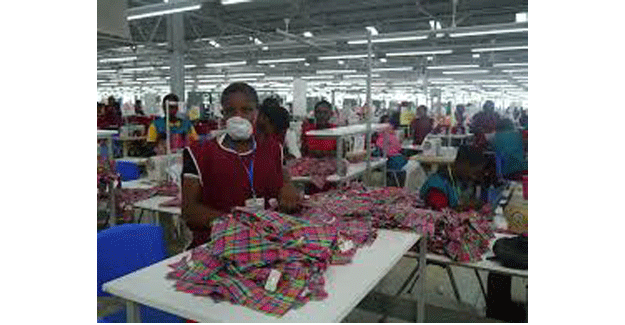
Kenya Rests Its Hopes On Apparel Sector To Eradicate Unemployment
The Kenyan government recently identified the textiles and apparels sector as a top priority for burgeoning economic growth in the country. The sector has achieved prominence under the Big Four agenda in the country’s manufacturing pillar. The Kenya Industrial Transformation Program has played a key role in making the textiles and apparels sector manifest as a priority for the country’s income generation.
This is a consequence of deep introspection on part of the government and senior policy makers in the ministry. They decided to concentrate on growing the manufacturing sector after taking a good look at the Human Development Index (HDI) 2017. The statistics furnished revealed that Kenya had an unemployment rate of 39.1 percent.
The study further accentuated the fact that such a large number of unemployed youth is a potential danger in the form of fomenting social unrest and violence. It could have far reaching social and political consequences. The government then understood that the textiles and apparels sector had the ability to create employment for the youth within a reasonably short period of time.
The textile sector serves a dual purpose. Firstly, it boosts the cotton farming activities and secondly it helps in the revival of the textile mills. This in turn creates a fully developed value chain, which has the capacity to absorb significant number of people in the workforce.
Besides, activities like cotton farming and apparel manufacture offer a lot of scope for employment by virtue of being highly labour intensive. At present this sector happens to be the bread-winner or the crucial foreign exchange provider for Kenya.
Under the African Growth and Opportunity Act (AGOA), Kenya happens to be the largest exporter of apparels. The figures stand at Sh 35 billion for the year 2017.
Along with rapid changes in trends engulfing the global apparels sourcing supply chain, Kenya has been in a strong position to attract substantial number of world buyers. According to experts in the Kenyan economy, these figures have potential to grow when Kenya enhances its competitiveness and diversifies its markets. At present Kenya faces the prospects of borrowing best practices from a rising giant in world apparel and textile industry, namely Bangladesh.

Textile Excellence
If you wish to Subscribe to Textile Excellence Print Edition, kindly fill in the below form and we shall get back to you with details.













